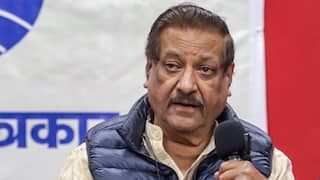Parakram Diwas 2023: Know How Subhash Chandra Bose Got The Title Of 'Desh Nayak'
Subhas Chandra Bose Jayanti 2023: 'Netaji' needs no introduction as he was an Indian revolutionary prominent in the independence movement against British rule of India.

Netaji Subhas Chandra Bose Jayanti 2023: Netaji Subhas Chandra Bose played a crucial role in India's journey towards independence. He founded the 'Azad Hind Fauj', an army that fought for the country's freedom. Considered one of the greatest freedom fighters of India, his powerful slogan "Give me blood, I will give you freedom" continues to inspire patriotism among Indians.
Netaji led various campaigns to liberate India from British colonialism. The Azad Hind Fauj, which he established, was a significant force in the fight against British rule. Let's take a closer look at the life and legacy of this remarkable freedom fighter.
Birth And Early Life Of Netaji
Netaji Subhas Chandra Bose was born on January 23rd, 1897 in Cuttack, Odisha. His parents were Janakinath Bose and Prabhavati Devi. From a young age, he demonstrated exceptional intelligence and excelled in his studies. He graduated from Cambridge University in England.
However, in 1921, after learning about the injustices committed by the British in India, he made a commitment to fight for his country's freedom. He left his prestigious job in the administrative service in England and returned to India to begin his freedom struggle. His famous slogan, "Give me blood, and I will give you freedom," continues to inspire patriotism and national devotion.
Title Of 'Netaji'
In addition to "Netaji", Bose is also known as "Desh Nayak", a title given to him by Rabindranath Tagore. It is said that Tagore bestowed this title upon him as a recognition of his leadership and contributions to the Indian independence movement.
Some Interesting Facts About Subhas Chandra Bose
- In 1942, Subhash Chandra Bose approached Hitler with a proposal to liberate India, but Hitler showed no interest and made no clear promises to Bose.
- Despite a successful career in the Administrative Service, Bose quit his job to dedicate himself to the freedom struggle.
- The Jallianwala Bagh massacre was a turning point in Bose's life and it prompted him to join the freedom struggle.
- In 1943, Bose established Azad Hind Radio and Free India Central in Berlin.
- Azad Hind Bank issued notes, including a one lakh rupee note featuring a photograph of Netaji Subhas Chandra.
- Bose referred to Mahatma Gandhi as the "Father of the Nation".
- Between 1921 and 1941, Bose was imprisoned 11 times in various Indian prisons.
- He was twice elected as President of the Indian National Congress.
- The circumstances surrounding Bose's death remain a mystery to this day. While travelling to Japan in 1945, his plane reportedly crashed in Taiwan, but his remains were never found.
Related Video
Union Budget 2024: Nirmala Sitharaman Reaches Parliament Ahead Of Budget Presentation Today | ABP News





































